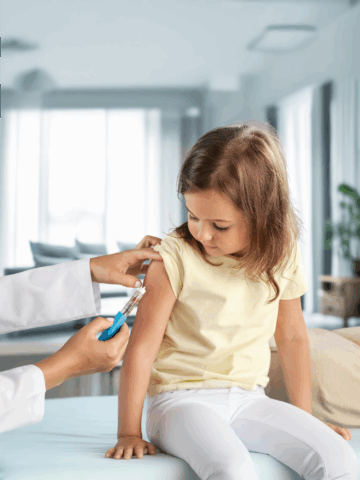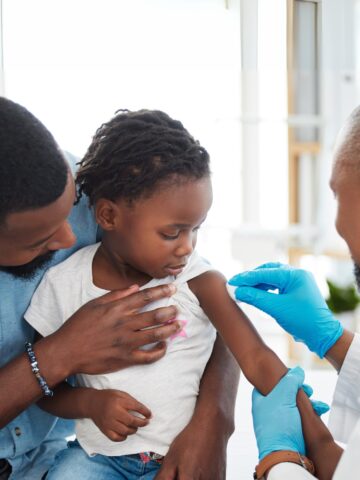With the COVID-19 vaccine now available for people ages 12 years and older – and availability expected in coming months for people even younger – parents may still have concerns about its safety in children.
In this Q & A, Dr. Jasjit Singh, a pediatric infectious disease specialist and medical director of infection prevention at CHOC, helps settle the misconception that the COVID-19 vaccine affects fertility.
Does the vaccine affect fertility?
No. There is no evidence that the COVID-19 vaccines can impair fertility. There is no biologic plausibility for this.
Why does this theory persist then?
First, let’s have a refresher lesson on how mRNA vaccines – the type of vaccine produced by both Pfizer and Moderna – work. When the vaccine is injected into a body, mRNA – a strip of genetic material – enters the body’s cell and prompts the cell to build copies of spike proteins. These spike proteins are the bumps that protrude from the surface of coronavirus particles. The body’s immune system then learns to spot these spike proteins and produces antibodies and other immune responses that block the virus from entering healthy cells in the future.
There have been claims that a protein called Syncytin-1, which is present in the early development of the placenta, have a similar chemical sequence as the COVID-19 spike protein. The claim is then that a body that has received the vaccine might later confuse the Syncytin-1 protein for a COVID spike protein and block it, ostensibly causing an inability for a body to get pregnant.
But there is no reason to suspect this will happen, and here’s why:
While the two protein sequences do share very small amounts of similarity, they are very, very short sequences. The likelihood of these protein sequences being confused for each other is non-existent.
Do we have proof that people who got the COVID-19 vaccine were able to have children?
Yes. We know that natural COVID-19 infection hasn’t caused infertility. If someone were to have had COVID-19, they’d naturally have antibodies to these spike proteins, and yet women who have had COVID-19 are still getting pregnant. We also know that from earlier trials, an equal number of women who were given the vaccine and who received the placebo shot became pregnant.
Would you give this vaccine to a young woman in your family?
Absolutely yes.
Bigger picture, why do we need to vaccinate teens and kids if their risk of serious COVID-19 complications is low?
Vaccinating children against COVID-19 is very important. We know the disease is not completely benign in children. In addition to requiring some children to be hospitalized for treatment, COVID-19 can lead to an inflammation in children called Multisystem Inflammatory Syndrome in Children (MIS-C). We also know that children with COVID-19 at are risk for long-term complications, the extent to which are still fully unknown. Additionally, there are children who are exhibiting COVID “long haul” symptoms.
Even if a child had no risk of long-term illness or COVID-19 complication, they might still spread the disease to others, who may have more pronounced risks. Further, we need to eliminate pockets of vulnerability where the virus can continue to live and replicate and mutate into new variants. Those new variants may not be as effectively blocked by the vaccine.
In addition, children younger than 18 account for about 22 percent of the population. In order for us to reach a population wherein 70 to 80 percent of people are immune to COVID-19 – a term called “herd immunity” – children must be included in that ratio.
Higher levels of immunity will allow us to continue to open up the economy, resume a normal life and feel very confident in enrolling children in in-person learning, sports and activities. We need kids to return to school for their educational, physical, social and emotional health.
Get more expert health advice delivered to your inbox monthly by subscribing to the KidsHealth newsletter here.
Learn more about COVID Vaccines for Children and Teens
Get answers to your frequently asked questions – and some peace of mind – with this complete guide to COVID-19 vaccines from CHOC pediatric experts.





